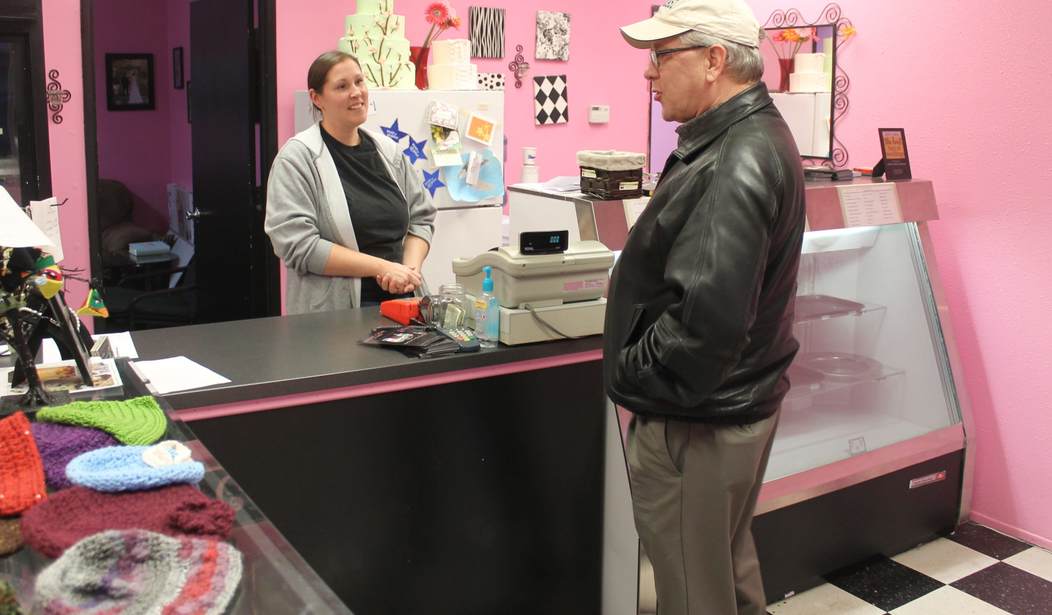Seven years after Christian bakers refused to craft a cake to celebrate a same-sex wedding, the bakers are again in court, fighting to reverse a judgment that wiped out their life savings and drove them out of business. The U.S. Supreme Court sent their case back to the Oregon Court of Appeals (OCA) last year.
In January 2013, Christian bakers Aaron and Melissa Klein refused to bake a custom wedding cake to celebrate a lesbian ceremony. Two years later, the Oregon Bureau of Labor and Industries (BOLI) slapped a $135,000 fine on the Kleins, citing one of the women who requested the cake saying she had felt “mentally raped” by the refusal. The fine wiped out the Kleins’ life savings and forced their bakery, Sweet Cakes by Melissa, out of business. They appealed, but the OCA ruled against them in 2017. The Oregon Supreme Court refused to hear the case, but the U.S. Supreme Court reopened it last year.
In 2018, the Supreme Court ruled in favor of Christian baker Jack Phillips, who similarly refused to bake a cake to celebrate a same-sex wedding, even though he gladly serves LGBT people in his shop.
In both cases, state agencies had ruled that the bakers discriminated against LGBT people on the basis of sexual orientation. In Phillips’ case, members of the Colorado Civil Rights Commission had compared his traditional beliefs on marriage to justifications of the Holocaust, even though Phillips’ own father fought against the Nazis in World War II.
In the case Masterpiece Cakeshop v. Colorado Civil Rights Commission, the Supreme Court ruled that the commission had displayed “clear and impermissible hostility” to Phillips’ religious beliefs, violating his First Amendment right to free exercise of religion. The ruling did not tackle the thornier issue of whether or not refusing to celebrate a same-sex wedding by providing artistic event services is a matter of free speech, however.
The Court also sent the Kleins’ case back to the lower court for another decision.
“The Oregon Bureau of Labor and Industries (BOLI) ordered the Kleins to pay $135,000. The Court of Appeals is now considering whether or not to uphold BOLI’s order. If the court concludes that BOLI acted in a non-neutral way or acted with hostility toward religion, then the court could reverse BOLI’s order,” Stephanie Taub, First Liberty Institute’s lead attorney for the Kleins case, told PJ Media on Monday. “A decision can be released at any time, likely within the next few months.”
The BOLI ruling against the Kleins was remarkable for many reasons. It not only took the lesbian couple’s claims of emotional damages at face value, but also assessed the fine against Aaron and Melissa Klein’s personal property, rather than against the business.
Like Phillips, the Kleins gladly served LGBT people at their shop, selling them any sort of baked goods they might desire. However, both Phillips and the Kleins would not lend their artistic talents to celebrate a ceremony that conflicted with their religious beliefs about marriage.
In the Supreme Court decision that made same-sex marriage legal, Obergefell v. Hodges (2015), Justice Anthony Kennedy emphasized the noble reasons why many Americans disagree with same-sex marriage.
“Many who deem same-sex marriage to be wrong reach that conclusion based on decent and honorable religious or philosophical premises, and neither they nor their beliefs are disparaged here,” Kennedy wrote. “Finally, it must be emphasized that religions, and those who adhere to religious doctrines, may continue to advocate with utmost, sincere conviction that, by divine precepts, same-sex marriage should not be condoned. The First Amendment ensures that religious organizations and persons are given proper protection as they seek to teach the principles that are so fulfilling and so central to their lives and faiths.”
That very freedom came under threat in these cases. Perhaps for that reason, Kennedy sided with the majority in Masterpiece Cakeshop.
“Tolerance is essential in a free society, and tolerance is most meaningful when it’s mutual. It seems to be that the state [of Colorado] in its position here has been neither tolerant nor respectful of Mr. Phillips’ religious beliefs,” Kennedy said during oral arguments. He also noted that “accommodation is quite possible” because “there were other … good bakery shops that were available.”
If the gay rights hero who enshrined same-sex marriage into law supports the religious freedom of bakers like Phillips, LGBT activists and state agencies should reconsider their positions against religious freedom.
Follow Tyler O’Neil, the author of this article, on Twitter at @Tyler2ONeil.









Join the conversation as a VIP Member